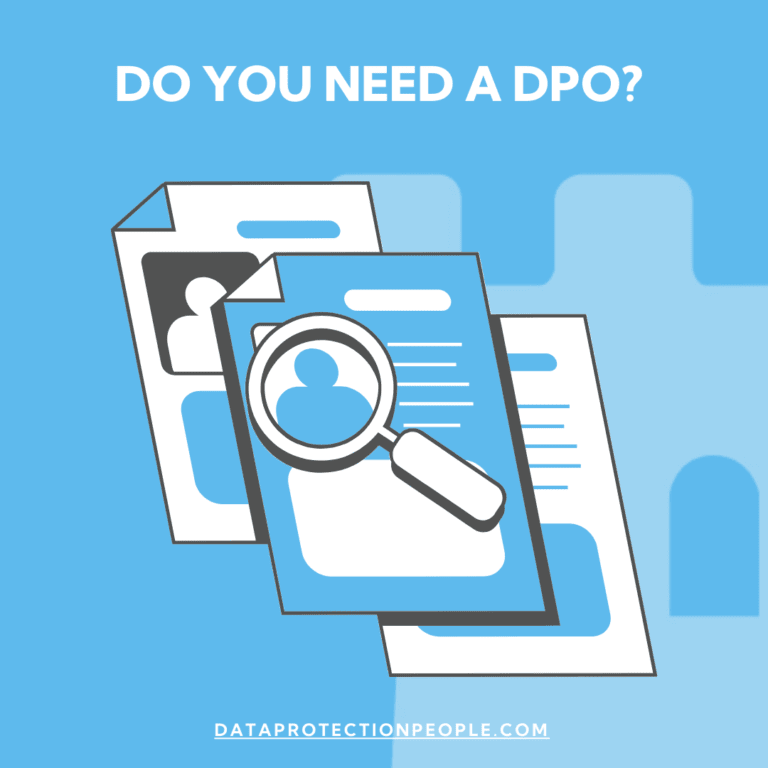Do You Need a Data Protection Officer (DPO)?
Data Protection People
A data protection officer is only mandatory if your business carries out specific processing activities or is a public authority or body.

Appointing a data protection officer (DPO) is only required if your organisation’s operations meet specific criteria. Without knowing this, businesses may either overlook their legal obligations or appoint a DPO when it isn’t necessary.
So, what does this mean for your business? In this blog, we’ll uncover the criteria required to appoint a DPO and how to demonstrate accountability even if you don’t.
What Does DPO Mean?
DPO stands for data protection officer. The UK GDPR introduced this role to help organisations meet their data protection obligations.
A data protection officer carries out their responsibilities independently, meaning they act on behalf of the law rather than for commercial purposes. When appointed, a DPO will monitor compliance, inform you of your data protection obligations, provide support on Data Protection Impact Assessments (DPIAs) and handle contact between data subjects and the ICO.
Are You Required to Have a DPO?
Not every organisation needs a data protection officer. You are only legally obliged to appoint a DPO if:
- You are a public authority or body, except for judicial courts.
- Your core activities (the primary activities of your business) require routine and systematic monitoring of individuals on a large scale.
- Your core activities involve the large-scale processing of special category data or data related to criminal convictions and offences.
It’s a common myth that only big businesses require a DPO. In reality, it depends on whether your main activities involve regularly using personal data in a way that’s essential to running your organisation.
For example, a healthcare provider needs to process patient medical records as part of its core activities to deliver care for its patients. The provider will also process its employees’ HR information, which would be considered a secondary function of its core activities.
Do Small Companies Need a DPO?
If you meet the criteria, then yes, you do need a DPO. More often than not, small businesses won’t require a data protection officer as they usually don’t have the resources to support such large-scale processing.
Even if you fall into this category, the UK GDPR still expects you to meet your data protection obligations. Rather than a DPO, you may instead designate an employee to oversee your processing activities to ensure you’re meeting best practices.
You can also outsource to external providers for GDPR support when you need a helping hand responding to DSARs or managing compliance records like RoPAs and DPIAs.
You can appoint an internal or outsourced DPO on a voluntary basis. Whether you need one or not, a DPO will help you operate within the law, which is vital as your business and its data processing activities grow.
Want to learn more? Read these next:
- 5 signs you need an outsourced DPO
- What is a DPO?
- The role of a DPO
- How to stand out as a DPO [Podcast]
Speak to Our Expert Outsourced DPOs
As your business grows, knowing when it’s the right time to outsource a DPO can be difficult. Our data protection consultancy provides the clarity you need to understand your obligations and the services to keep you on track.
